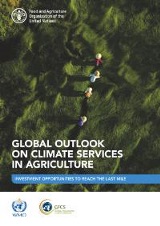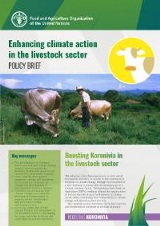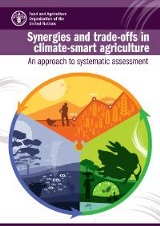Climate change is defined as a shift in average weather conditions in a region over a period of time.
FAO is supporting countries to both mitigate and adapt to the negative effects of climate change through a wide range of research based and practical programmes and projects, as an integral part of the 2030 Agenda and the Sustainable Development Goals.
Overview and FAO contribution
Agriculture is climate sensitive, and climate change is expected to significantly affect the agriculture sector. Climate change already has negatively affected the yields of crops such as maize and wheat due to the reduced availability of water for agriculture. In addition, the Europe and Central Asia region has some of the world’s biggest greenhouse gas emitter countries as well as some of the smallest.
 The agriculture sector plays a major role economically in the region with agriculture lands accounting for over 40 percent of total land area in most countries and agricultural employment accounting for more than 20 percent of the total employment in many countries in the region.
The agriculture sector plays a major role economically in the region with agriculture lands accounting for over 40 percent of total land area in most countries and agricultural employment accounting for more than 20 percent of the total employment in many countries in the region.
Several interventions have been recognized as important to enhancing the agriculture sector in the face of a changing climate. Already, countries have been identifying and addressing gaps in policy, technology, data, information and resources. Integrated approaches such as sustainable agriculture and climate smart agriculture are some of the ways governments and private and international organizations are building resilience while reducing greenhouse gas emissions to tackle climate change [2]. However, there is a need to scale up action, increase awareness and generate more resources to support greening agriculture to obtain food and nutrition security by 2030, in line with the Sustainable Development Goals.
 FAO’s work on climate change involves providing technical expertise, mobilizing support and establishing partnerships for developing and transforming agriculture systems in countries to build resilience to climate change, increase agricultural productivity and reduce greenhouse gas emissions in the agriculture sector.
FAO’s work on climate change involves providing technical expertise, mobilizing support and establishing partnerships for developing and transforming agriculture systems in countries to build resilience to climate change, increase agricultural productivity and reduce greenhouse gas emissions in the agriculture sector.
[1] Van ‘t Wout, T., Celikyilmaz, G. & Arguello, C. Policy analysis of Nationally Determined Contributions in the Europe and Central Asia region 2021. Budapest, FAO 2021.
Publications
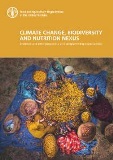
Climate change, biodiversity and nutrition nexus
2021
This paper identifies entry points within agri-food systems to improve biodiversity and diets, two levers that can be used to enhance nutrition and optimize environmental sustainability while ensuring social equity, especially of the most vulnerable people. It also presents recommendations for concrete actions by key stakeholders – governments, academia, civil society, private sector, and development partners –to build resilient, inclusive, and sustainable agri-food systems.
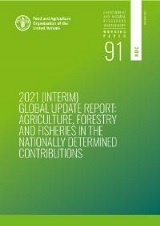
2021 (Interim) Global update report: Agriculture, Forestry and Fisheries in the Nationally Determined Contributions
2021
Crumpler, K., Abi Khalil, R., Tanganelli, E., Rai, N., Roffredi, L., Meybeck, A., Umulisa, V., Wolf, J., Bernoux, M.
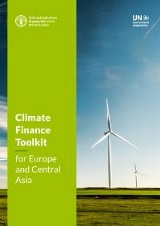
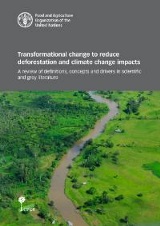
Transformational change to reduce deforestation and climate change impacts
2021
Atmadja, S., Martius, C., Leonard, S. and Sanz Sanchez, M.J.
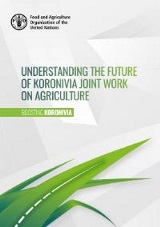
Understanding the future of Koronivia Joint Work on Agriculture
2021
Drieux, E., Van Uffelen, A., Bottigliero, F., Kaugure, L., Bernoux, M.
Links
- Strategy for FAO's work on climate change
- FAO's climate action
- Climate-smart agriculture
- Climate-resilient practices
- Knowledge hub climate
- Hand-in-Hand
- Koronivia ioint work on agriculture
- FAO sustainable and circular bioeconomy
- FAO energy
- FAO's office of climate, biodiversity and environment
- NEW - Toolkit for Private Sector Enagagement In Climate Action

